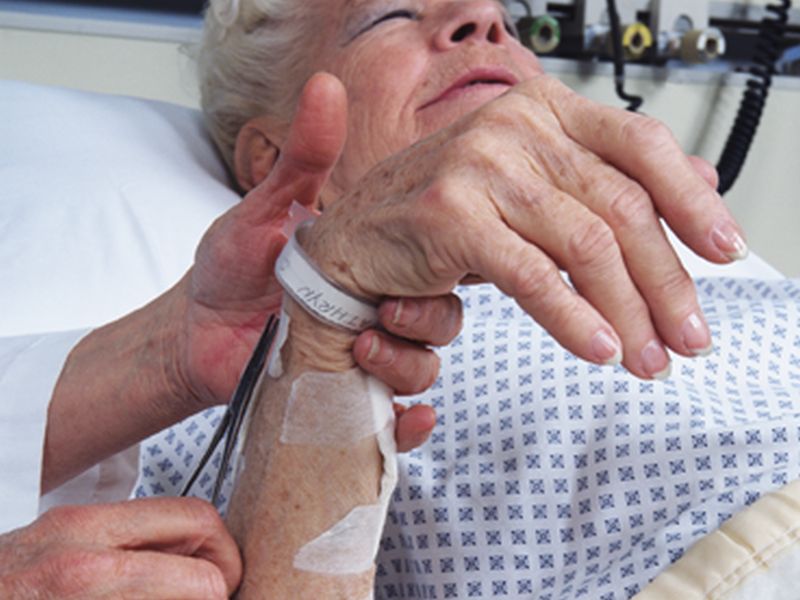Family Can Help Keep Delirium at Bay After Surgery
By Steven ReinbergHealthDay Reporter

TUESDAY, Oct. 22, 2019 (HealthDay News) -- Many older hospital patients suffer delirium after surgery, but a new program that involves the patient's family in recovery may help, a new study suggests.
Called the Tailored, Family-Involved Hospital Elder Life Program (t-HELP), it appears to help lessen the burden of postoperative delirium while maintaining or improving physical and thinking functions, and shortening the time patients spend in the hospital.
"Family involvement through t-HELP may be cost-effective, by providing psychological and emotional support to older patients undergoing treatment in hospitals without adding extra costs," said researcher Yanyan Wang, a post-doctorate fellow at the University of Texas at Austin.
Postoperative delirium is a common problem after an operation, especially among older patients. Patients suffering from it may have problems understanding what is happening to them. They may say things that don't make sense or have hallucinations. They may also be afraid or anxious.
That's where the t-HELP program comes in. The program adds family members to a team of nurses and volunteers who help patients recover after an operation.
Having family members with the patient most of the time helps relieve the patient's anxiety and confusion about being in a strange place. They can also help the patient understand delusions that might crop up in dreams, the researchers explained.
Bringing familiar things from home like blankets, photos or a clock can help patients re-orient themselves. Also, being sure they have their glasses or hearing aids can help reduce confusion about what's happening to them, the study authors said.
In addition, family members can help the patient eat and walk, and get on the road to recovery. They can also intervene if they feel special help is needed, and act as an advocate for their relative.
The program is tailored to each patient's risk factor profile so that each patient has a customized menu of interventions, Wang said.
For the study, Wang and colleagues randomly assigned patients in West China Hospital in Chengdu, China, to t-HELP (152 patients) or regular care (129 patients) after surgery from August 2015 through February 2016. Patients had a variety of operations including on the stomach, colon, pancreas, chest and thyroid.
In all, four patients in the t-HELP group developed postoperative delirium compared with 25 in the usual care group. Patients in the t-HELP group also showed less decline in physical and mental function, and spent less time in the hospital than those who didn't receive the special help, the findings showed.
The report was published online Oct. 21 in JAMA Internal Medicine.
Dr. Teresa Amato is chair of emergency medicine at Northwell Health's Long Island Jewish Forest Hills, in Forest Hills, N.Y. Commenting on the study, she said, "The elderly postoperative patient faces many challenges during recovery and more than 10% will experience an acute episode of delirium."
Delirium can pose hazards, such as increased risk of falls, and psychological stress for the patient and the family, she added.
"This study is exciting in that the intervention included not only medical personnel, but also had family and caregivers as an essential part of the care," Amato said.
More information
For more on how family members can help patients, head to the Hospital Elder Life Program.

The news stories provided in Health News and our Health-E News Newsletter are a service of the nationally syndicated HealthDay® news and information company. Stories refer to national trends and breaking health news, and are not necessarily indicative of or always supported by our facility and providers. This information is provided for informational and educational purposes only, and is not intended to be a substitute for medical advice, diagnosis, or treatment.

